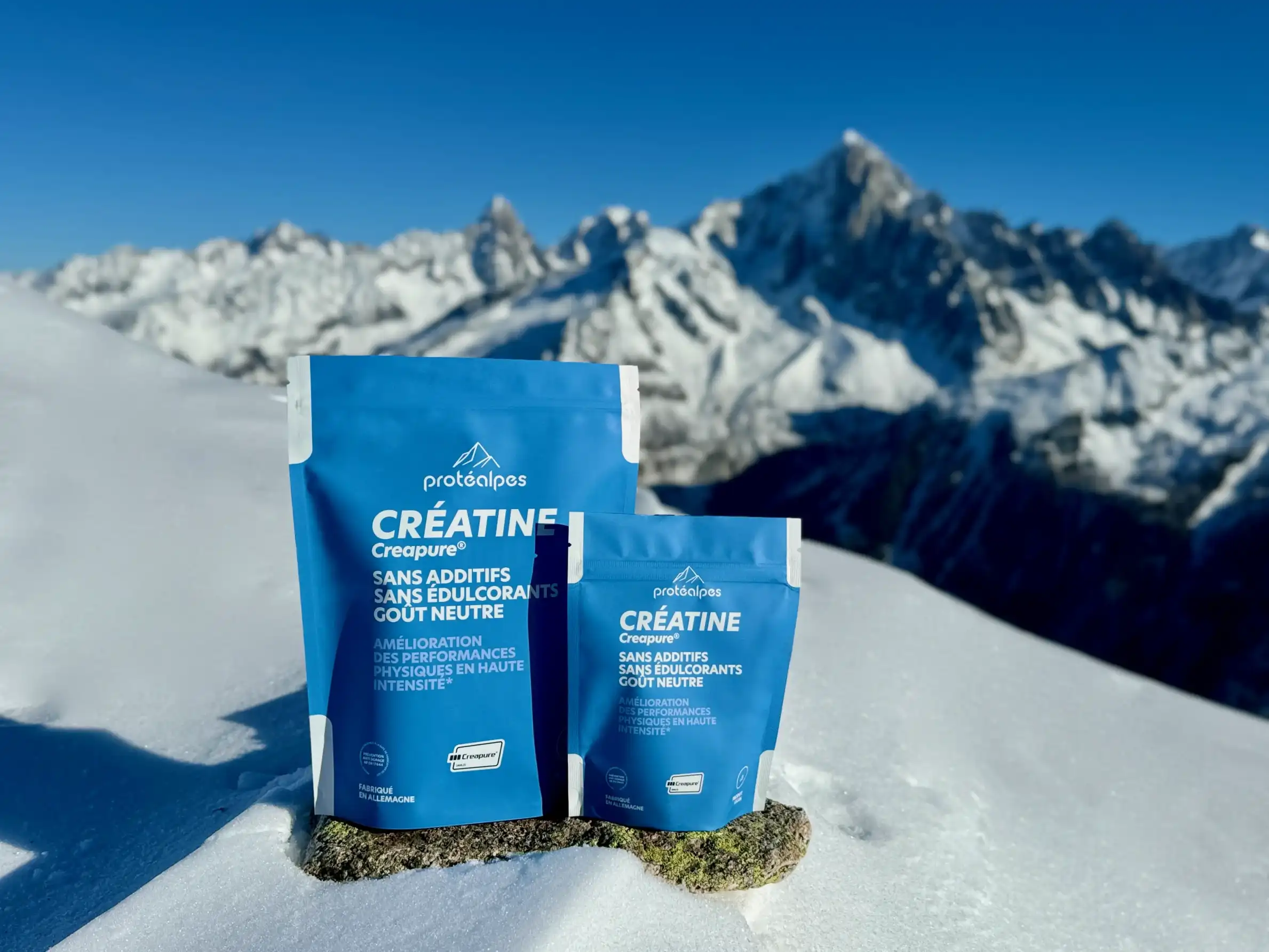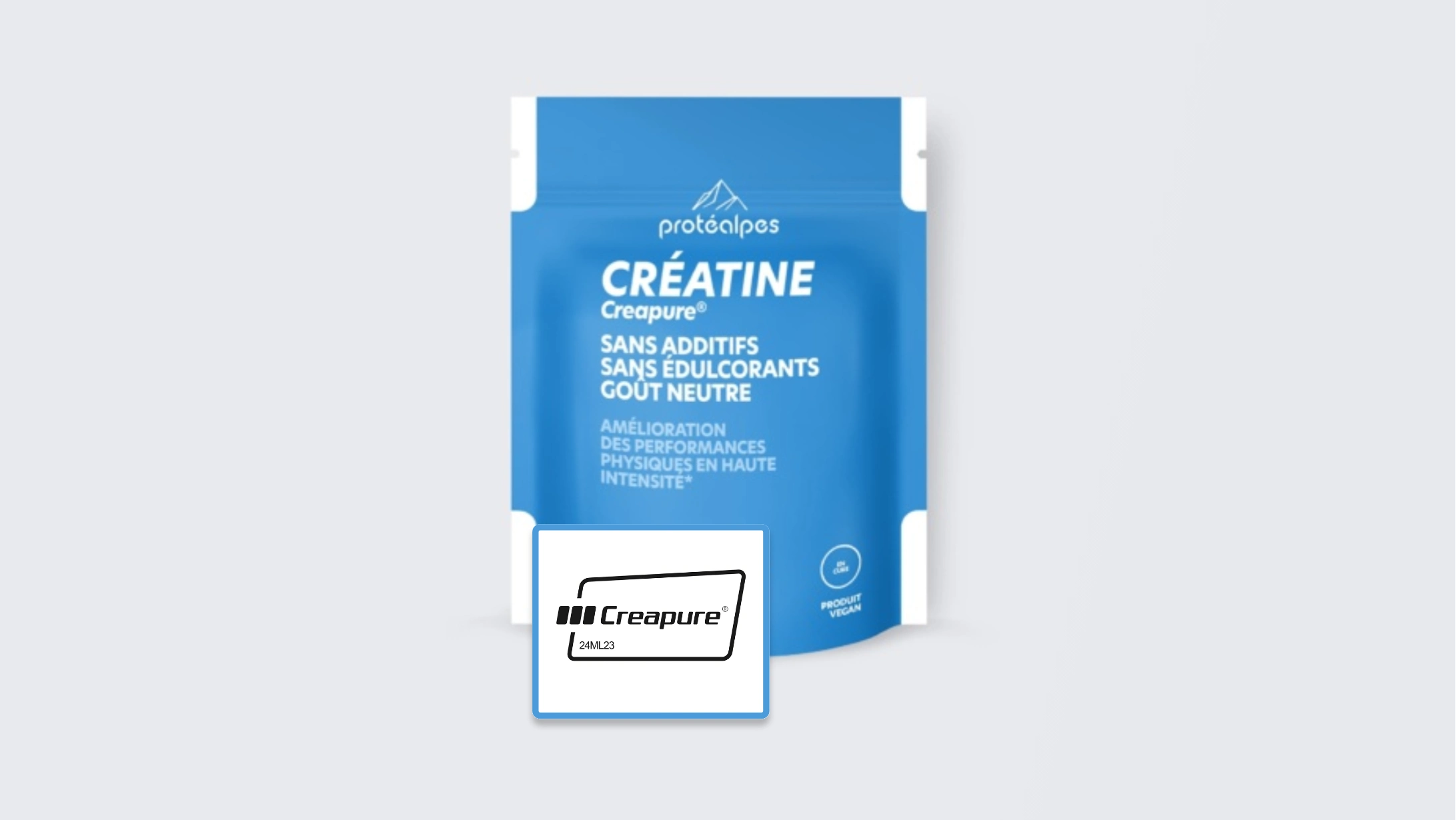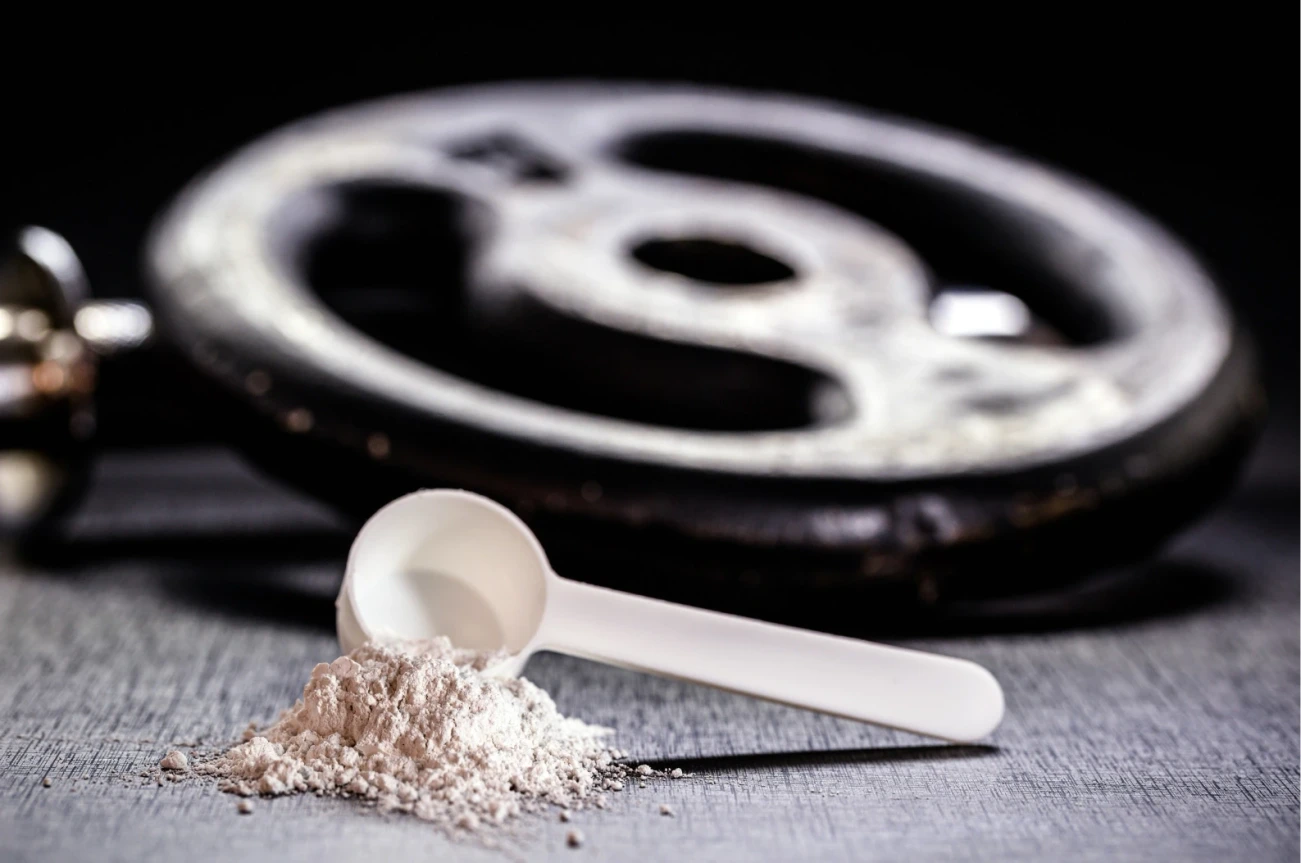Creatine monohydrate is currently the most studied and effective form of creatine according to scientists. The kre-alkalyn form lacks studies proving its benefits, and creatine phosphokinase is not a dietary supplement but an enzyme essential to our metabolism!
Although creatine is one of the most widely used dietary supplements after protein powders, the multiplication of forms available on the market makes distinguishing between the many variants complicated, and selecting the best creatine a real headache.
In a nutshell:
Creatine phosphokinase = enzyme naturally present in the human body
Creatine monohydrate = the form closest to pure creatine (+ 1 molecule of water) and the most effective according to scientists
Creatine kre-alkaline = buffered form of creatine monohydrate with no additional proven benefits on athletic performance
What is creatine?
Origin and physiological role
Creatine is a natural organic compound synthesized by our body from three amino acids: arginine, glycine and methionine, and plays an essential role in the energy metabolism of our muscle cells.
Our bodies produce around 1 gram of creatine a day. It is also found in our food, such as fish and meat.
At cellular level, creatine combines with phosphate to form creatine phosphate (phosphocreatine). This molecule enables the rapid regeneration of adenosine triphosphate (ATP), our main source of muscular energy during short, intense efforts.
Contrary to popular belief, creatine is neither a doping substance nor a steroid, but a natural compound already present in our bodies. The production of synthetic creatine is a chemical process using no animal sources, which makes creatine 100% vegan.
Why supplement?
Creatine supplementation has many proven benefits for athletes:
- Increased maximum force
- Improved explosive power (ideal for sprints or efforts characteristic of Crossfit or street workout , for example)
- Better recovery
- Optimizing training volume
Creatine doesn't work alone! It must be combined with intense training and appropriate nutrition to be effective. The first effects on performance appear after 1 to 3 weeks, and the time required to build muscle mass depends on the intensity of the athlete's training.
As a result, many athletes involved in explosive sports choose to take a creatine cure to boost their performance. But which creatine to choose from among the many forms on the market?

Creatine monohydrate, Kre-alkalyn and Phosphokinase: what are the differences?
First of all, it's important to stress that creatine phosphokinase is not one of the available forms of creatine, but an enzyme in the human body!
Creatine phosphokinase (CPK) is an enzyme naturally present in the body, enabling creatine to be converted into phosphocreatine in the muscle.
It is this enzyme that enables the rapid regeneration of ATP during intense effort, making the link between the creatine we consume andcellular energy production!
Creatine monohydrate is a creatine molecule bound to a water molecule, giving it optimum stability and excellent bioavailability. It is the native form closest to the creatine naturally present in the body, and its side effects are minimal.
Kre-alkalyn is a creatine monohydrate buffered with alkaline salts (bicarbonate type) to stabilize the pH between 7 and 14. This form is claimed to be more stable in the stomach, but studies show that it offers no additional advantage over conventional monohydrate.
Creatine monohydrate: the scientific reference
There are no studies demonstrating that equivalent intake of other forms of creatine would increase muscle creatine storage capacity compared to creatine monohydrate.
In most studies, other forms of creatine have had less impact on sporting performance.
After years of research, creatine monohydrate remains the benchmark in terms of efficacy and safety among all forms of creatine available on the market.
Creapure: a guarantee of quality
While creatine monohydrate is the benchmark, not all brands are created equal. The Creapure® label, developed by the German company Alzchem, today represents the highest standard of quality.

Here are the distinguishing features of Creapure® :
- Purity guaranteed > 99.9%.
- Made exclusively in Germany, in a dedicated factory
- Regular quality controls
- Complete process traceability, controlled distribution channels
- Anti-doping certification
Product purity has a direct impact on supplement efficacy and consumer safety.
To optimize your creatine supplementation, we recommend :
- Choosing Creapure® creatine monohydrate
- Follow a suitable charging protocol
- Combine it with specific, intense training
- Maintain adequate hydration
Conclusion
In conclusion, creatine monohydrate, particularly under the Creapure® label, remains the safest, most studied and most effective form of creatine for improving sporting performance.
It's best to avoid poorly documented alternatives such as kre-alkalyn, and not to confuse creatine with natural enzymes such as creatine phosphokinase.
Further information
Wondering when and how to take creatine during fasting or Ramadan without impacting your performance? We tell you all about creatine and intermittent fasting, including the optimum times to take it.
Blood tests reveal high creatinine levels? Find out the difference between creatine and creatinine and how to interpret your blood creatine level.
At what age is it safe to start taking creatine? See our complete guide to creatine for adolescents and young athletes.
It is possible toincrease creatine production naturally through diet and some simple levers. Find out how to make more creatine naturally.
Is creatine useful in endurance sports such as running, cycling or tennis? We take a look at its real effects in our article dedicated to creatine for endurance sports.















